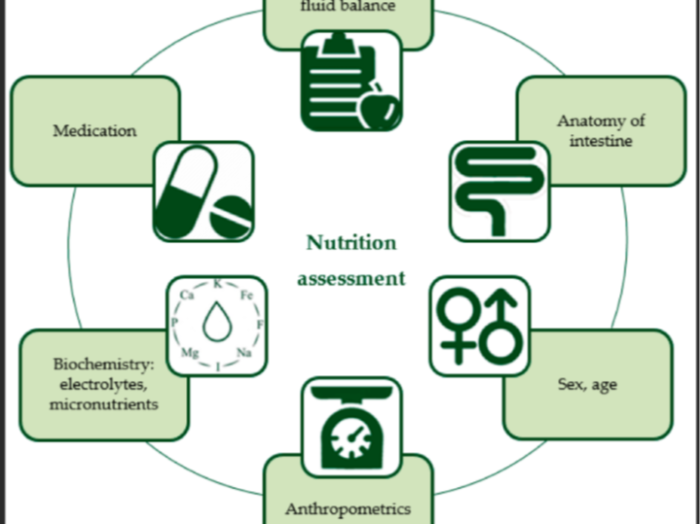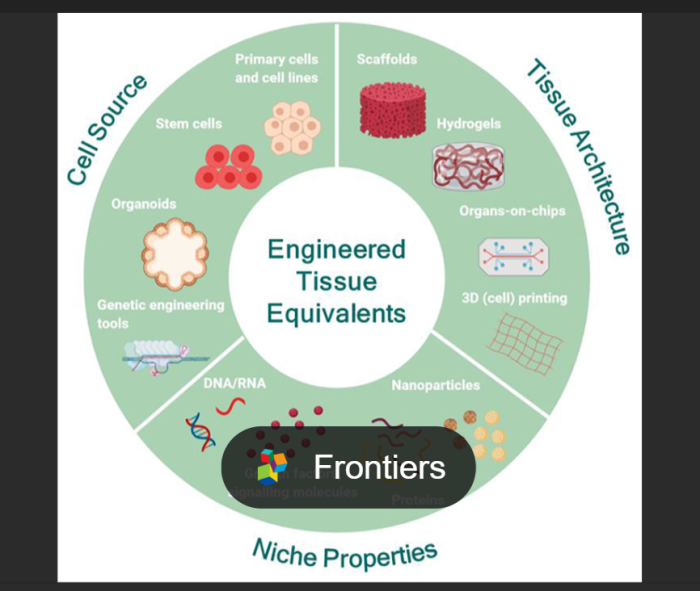As the field of medicine advances, intestinal transplant alternatives are gaining prominence as viable options for patients facing intestinal failure. These emerging therapies and innovations aim to provide effective solutions that can improve the quality of life for individuals who may not be eligible for or who prefer alternatives to transplantation. From nutritional support to cutting-edge technologies like 3D bioprinting and gene therapy, the future of intestinal health looks promising, offering hope for better management of intestinal disorders.
Understanding Intestinal Failure: Causes and Challenges
Intestinal failure occurs when the intestine can no longer absorb enough nutrients and fluids to sustain health, often resulting from conditions such as Crohn's disease, surgical complications, or congenital defects. This complex condition poses significant challenges for patients, including malnutrition, dehydration, and dependence on intravenous nutrition. The management of intestinal failure requires a multifaceted approach that addresses both the underlying causes and the nutritional needs of the patient, emphasizing the importance of exploring alternative therapies to traditional transplantation.
The Role of Nutritional Support in Intestinal Failure Management
Nutritional support plays a crucial role in managing intestinal failure, helping to maintain nutritional status and overall health. Two primary forms of nutritional support include enteral nutrition and parenteral nutrition. Enteral nutrition involves delivering nutrients directly into the digestive tract, while parenteral nutrition provides essential nutrients intravenously. These methods can effectively alleviate the symptoms of intestinal failure and enhance the patient's quality of life, making them critical components of a comprehensive care strategy.

Enteral Nutrition: A Viable Alternative to Transplantation
Enteral nutrition is often considered a viable alternative to intestinal transplantation for patients with partial bowel function. By supplying nutrients directly to the stomach or intestines, this approach helps maintain a level of nutrition that can support health without the risks associated with transplantation. Advances in formula development and feeding techniques have made enteral nutrition more accessible and effective, allowing patients to achieve better outcomes and potentially avoid the need for a transplant.
Parenteral Nutrition: What You Need to Know
Parenteral nutrition (PN) is a critical intervention for individuals who cannot absorb nutrients through their intestines. Administered intravenously, PN delivers essential nutrients such as carbohydrates, proteins, fats, vitamins, and minerals directly into the bloodstream. While it can effectively meet the nutritional needs of patients with intestinal failure, it also carries risks such as infections and liver complications. Understanding the balance between benefits and risks is essential for patients and healthcare providers alike.
Intestinal Rehabilitation: Comprehensive Approach to Care
Intestinal rehabilitation involves a comprehensive approach to managing intestinal failure, combining medical, nutritional, and psychological support. The goal is to maximize intestinal function and reduce dependence on parenteral nutrition. Through individualized care plans, patients receive tailored interventions that include dietary modifications, medication management, and educational resources to enhance their understanding of the condition. This holistic approach fosters better long-term outcomes and improves overall quality of life.
Stem Cell Therapy: Potential for Intestinal Repair
Stem cell therapy is an innovative treatment option showing promise for repairing damaged intestinal tissues. By harnessing the regenerative properties of stem cells, researchers aim to restore the intestinal lining and improve nutrient absorption. Ongoing studies are investigating the safety and efficacy of this approach, which could revolutionize how we treat conditions leading to intestinal failure, potentially offering an alternative to traditional transplantation.

Regenerative Medicine: Innovations in Intestinal Health
Regenerative medicine encompasses a variety of techniques aimed at repairing or replacing damaged tissues and organs. In the context of intestinal health, innovations in this field focus on developing therapies that enhance the body's natural healing processes. Strategies such as cell-based therapies and growth factor applications are being explored to restore intestinal function and promote recovery in patients with chronic intestinal disorders.
Tissue Engineering: Creating Bioengineered Intestinal Segments
Tissue engineering is a groundbreaking field that aims to create bioengineered intestinal segments for transplantation or repair. By using a combination of biomaterials and living cells, researchers are developing artificial intestines that mimic natural function. This innovative approach could potentially provide a sustainable alternative for patients suffering from severe intestinal failure, reducing the need for donor organs and addressing the organ shortage crisis.

3D Bioprinting: The Future of Organ Replacement
3D bioprinting technology has the potential to revolutionize the field of organ replacement by enabling the creation of customized bioengineered tissues. This process involves layering living cells and biomaterials to produce functional intestinal structures. As research progresses, 3D bioprinting may offer personalized solutions for patients with intestinal failure, enhancing the possibilities for successful transplantation and reducing the risks associated with conventional donor organs.
Xenotransplantation: The Promise of Animal Organs
Xenotransplantation involves the transplantation of organs or tissues from one species to another, often from animals to humans. This emerging field holds promise as a potential solution to the shortage of human donor organs for intestinal transplantation. Researchers are exploring the ethical implications and biological challenges of using animal organs, focusing on improving compatibility and reducing the risk of rejection, making it a noteworthy alternative for patients in need.
Gene Therapy: Correcting Genetic Disorders Affecting the Intestine
Gene therapy offers a cutting-edge approach to treating genetic disorders that impact intestinal function. By targeting specific genes responsible for congenital conditions, this innovative technique aims to correct underlying issues and restore normal intestinal health. While still in the experimental stages, gene therapy holds the potential to transform the management of inherited intestinal disorders, providing hope for affected individuals and their families.
Fecal Microbiota Transplantation: Restoring Gut Health
Fecal microbiota transplantation (FMT) is an emerging therapy aimed at restoring the balance of gut bacteria in individuals with dysbiosis or intestinal disorders. By transferring healthy fecal matter from a donor to the patient, FMT has shown promising results in treating conditions like Clostridium difficile infection and inflammatory bowel disease. This innovative approach highlights the importance of the gut microbiome in overall health and provides an alternative to more invasive treatments.
Robotic Surgery: Enhancing Intestinal Procedures
Robotic surgery has revolutionized the field of minimally invasive procedures, including those involving the intestines. Utilizing advanced robotic systems, surgeons can perform complex intestinal surgeries with greater precision and control, leading to reduced recovery times and improved patient outcomes. This technological advancement is making intestinal procedures safer and more effective, offering an attractive alternative to traditional surgical methods.
Advanced Endoscopic Techniques: Minimally Invasive Alternatives
Advanced endoscopic techniques have emerged as minimally invasive alternatives for diagnosing and treating various intestinal disorders. These procedures, which include endoscopic mucosal resection and endoscopic submucosal dissection, allow for targeted interventions without the need for large incisions. By offering less traumatic options, advanced endoscopy can significantly improve patient recovery and reduce hospital stays.
When to Consider Intestinal Transplant
The Intestinal Transplant is a complex procedure considered for patients with severe intestinal failure. Understanding when this option may be necessary can help patients and families make informed decisions about their health journey. Factors such as chronic digestive issues, dependence on IV nutrition, and reduced quality of life are key indicators for considering this procedure. Consulting with specialists early can help in evaluating whether an intestinal transplant is the right choice.
Best Intestine Transplant Treatment in India
The Best Intestine Transplant Treatment in India is performed by expert surgeons who utilize advanced techniques to ensure optimal outcomes for patients, offering a personalized treatment plan tailored to individual health needs. These procedures are supported by state-of-the-art infrastructure and innovative medical technologies. Patients also receive guidance on pre- and post-transplant care, ensuring a smooth and successful recovery journey.
Best Intestine Transplant Hospitals in India
The Best Intestine Transplant Hospitals in India are equipped with cutting-edge technology and facilities, providing top-notch care, including pre-surgery consultations, surgical expertise, and post-operative recovery support to ensure a smooth patient journey. These hospitals are accredited for their excellence in medical services and adhere to international healthcare standards. Their multidisciplinary teams work collaboratively to address complex cases and deliver superior patient outcomes.
Intestine Transplant Cost in India
When considering the Intestine Transplant Cost in India, patients benefit from affordable and transparent pricing at leading hospitals, which offer cost-effective treatment options without compromising the quality of care. Comprehensive packages often include pre-transplant evaluations, surgical procedures, and post-operative support. These cost structures make life-saving treatments accessible to a broader range of patients across the globe.
Best Intestine Transplant Doctors in India
The Best Intestine Transplant Doctors in India are highly experienced in performing the surgery, utilizing a patient-centric approach that ensures personalized care, precise surgical techniques, and dedicated follow-up care to enhance recovery. They have a track record of successfully handling complex cases, providing patients with hope and confidence. Their expertise, coupled with a compassionate approach, makes them leaders in the field of intestinal transplants.
Intestine Transplant Recovery in India
The Intestine Transplant Recovery Process in India is designed to support patients at every step, from post-operative care to long-term management, ensuring optimal recovery and quality of life. Recovery protocols focus on preventing complications and promoting patient independence. With dedicated healthcare teams, patients receive continuous monitoring and guidance to make the recovery journey as smooth as possible.
Artificial Intelligence in Diagnosing Intestinal Disorders
Artificial intelligence (AI) is playing an increasingly important role in diagnosing intestinal disorders. By analyzing vast amounts of medical data and imaging results, AI algorithms can assist healthcare providers in identifying conditions more accurately and swiftly. This technology enhances clinical decision-making, ultimately leading to better patient outcomes and paving the way for more personalized treatment plans.
Telemedicine: Remote Monitoring for Intestinal Patients
Telemedicine has gained traction as a valuable tool for remote monitoring and management of intestinal disorders. By enabling virtual consultations and follow-ups, healthcare providers can closely monitor patients' conditions, provide timely interventions, and offer support without requiring in-person visits. This approach not only improves accessibility to care but also enhances patient engagement in their treatment journey.
Innovations in Immunosuppressive Therapy: Reducing Risks
Immunosuppressive therapy is crucial for preventing organ rejection in transplant patients. Innovations in this field focus on developing new medications and treatment regimens that minimize side effects and improve patient outcomes. By tailoring immunosuppressive strategies to individual patient needs, healthcare providers can enhance the safety and efficacy of intestinal transplantation, making it a more viable option for those in need.
The Role of Biologics in Managing Intestinal Disorders
Biologics are a class of medications derived from living organisms that target specific components of the immune system. They have revolutionized the treatment of chronic intestinal disorders such as inflammatory bowel disease (IBD) by providing effective alternatives to traditional therapies. The use of biologics allows for personalized treatment plans that can significantly improve the quality of life for patients struggling with intestinal issues.
Pharmacological Advances: New Medications for Intestinal Health
Recent pharmacological advances have led to the development of new medications that target specific pathways involved in intestinal health. These innovations aim to address unmet needs in managing conditions like IBD and intestinal failure, providing patients with more effective treatment options. As research continues, the future holds promise for even more breakthroughs in the pharmacological management of intestinal disorders.
Personalized Medicine: Tailoring Treatments to Individual Needs
Personalized medicine focuses on customizing healthcare based on individual patient characteristics, including genetics, lifestyle, and environmental factors. In the context of intestinal health, this approach aims to tailor treatments to the unique needs of each patient, optimizing therapeutic outcomes and minimizing adverse effects. By embracing personalized strategies, healthcare providers can enhance the management of intestinal disorders and improve overall patient satisfaction.
Innovative Surgical Techniques: Alternatives to Traditional Methods
Recent advancements in surgical techniques offer promising alternatives to traditional methods for treating intestinal disorders. Innovations such as laparoscopic surgery and single-incision approaches have improved recovery times and reduced postoperative complications. These minimally invasive techniques allow surgeons to address intestinal issues more effectively, making them attractive options for patients seeking alternatives to conventional surgery.
Collaborative Care Models: Multi-Disciplinary Approaches
Collaborative care models emphasize the importance of multi-disciplinary teams in managing intestinal disorders. By bringing together specialists from various fields, including gastroenterology, nutrition, surgery, and psychology, healthcare providers can create comprehensive treatment plans tailored to the needs of each patient. This team-based approach fosters improved communication and coordination, leading to better overall outcomes for individuals with complex intestinal issues.
Patient Education and Empowerment: Key to Alternative Therapies
Educating and empowering patients is essential for successful management of intestinal disorders and exploration of alternative therapies. By providing clear information about treatment options, risks, and benefits, healthcare providers can help patients make informed decisions about their care. Empowered patients are more likely to engage actively in their treatment plans, leading to better adherence and improved health outcomes.
Research and Clinical Trials: Current Innovations in Progress
Ongoing research and clinical trials are critical for advancing our understanding of intestinal disorders and developing new treatment options. These studies explore the safety and efficacy of emerging therapies, from stem cell treatments to novel medications, paving the way for innovative solutions that could change the landscape of intestinal healthcare. Participation in clinical trials also provides patients with access to cutting-edge therapies that may not yet be widely available.
Cost-Effectiveness of Emerging Therapies: A Comparative Analysis
Evaluating the cost-effectiveness of emerging therapies for intestinal disorders is essential for healthcare decision-making. By comparing the financial implications of innovative treatments with traditional options, healthcare providers can make informed choices that optimize patient outcomes while considering budget constraints. Understanding the economic impact of these therapies is crucial for ensuring equitable access to the latest advancements in intestinal care.
Ethical Considerations in Intestinal Transplant Alternatives
The exploration of intestine transplant alternatives raises important ethical considerations, particularly regarding the use of animal organs, genetic modification, and access to innovative therapies. Balancing the potential benefits of these alternatives with ethical implications is essential for guiding research and clinical practice in this rapidly evolving field. Ongoing dialogue among stakeholders, including patients, providers, and policymakers, is crucial to navigate these complex issues.
Patient Success Stories: Living Without Transplantation
Real-life patient success stories demonstrate the potential of alternative therapies in managing intestinal failure without the need for transplantation. These narratives highlight the resilience of individuals who have embraced innovative approaches, such as enteral nutrition, stem cell therapy, and advanced surgical techniques. Sharing these stories not only provides hope to others facing similar challenges but also underscores the importance of exploring all available options for optimal care.
Future Trends in Intestinal Therapy: What Lies Ahead
The future of intestinal therapy is bright, with ongoing research and technological advancements paving the way for new treatment modalities. As our understanding of intestinal health continues to evolve, we can expect to see more personalized, minimally invasive, and effective therapies emerge. By embracing innovation and collaboration, the medical community can enhance the quality of life for patients with intestinal disorders and improve outcomes in the field of intestinal healthcare.
Conclusion: The Path Forward for Intestinal Health Innovations
As we navigate the complex landscape of intestinal transplant alternatives, it is clear that emerging therapies and innovations hold significant promise for improving the management of intestinal disorders. By focusing on comprehensive care, patient empowerment, and ongoing research, we can pave the way for a brighter future in intestinal health. Embracing these alternatives not only enhances the quality of life for patients but also contributes to the advancement of medical science in this critical area of healthcare.
FAQs
1. What are the main alternatives to intestine transplantation?
Answer: Alternatives to intestine transplantation include
enteral nutrition,
parenteral nutrition,
intestinal rehabilitation,
stem cell therapy,
tissue engineering, and
fecal microbiota transplantation, among others.
2. How does enteral nutrition help patients with intestinal failure?
Answer: Enteral nutrition provides essential nutrients directly to the gastrointestinal tract, helping to maintain nutritional status and improve the overall health of patients with intestinal failure.
3. What is parenteral nutrition, and when is it used?
Answer: Parenteral nutrition is administered intravenously when a patient cannot absorb nutrients through the intestines. It delivers essential nutrients directly into the bloodstream.
4. Can stem cell therapy repair damaged intestines?
Answer: Yes,
stem cell therapy has the potential to repair damaged intestinal tissues by promoting regeneration and improving nutrient absorption.
5. What role does telemedicine play in managing intestinal disorders?
Answer: Telemedicine enables remote monitoring and consultations, allowing healthcare providers to support patients with intestinal disorders without the need for in-person visits.
6. What are the benefits of using 3D bioprinting for intestinal health?
Answer: 3D bioprinting allows for the creation of customized bioengineered intestinal segments, which could provide personalized solutions for patients with intestinal failure.
7. How does personalized medicine enhance treatment for intestinal disorders?
Answer: Personalized medicine tailors treatments based on individual patient characteristics, optimizing therapeutic outcomes and improving overall satisfaction.
8. What are the ethical considerations regarding xenotransplantation?
Answer: Ethical considerations for
xenotransplantation include the use of animal organs, potential for zoonotic infections, and the implications for donor animal welfare.
9. How can patient education improve the management of intestinal disorders?
Answer: Providing clear information about treatment options empowers patients to make informed decisions, leading to better adherence and improved health outcomes.
10. What is the future outlook for alternatives to intestinal transplantation?
Answer: The future of
intestinal transplantation alternatives is promising, with ongoing research and technological advancements expected to lead to more effective, personalized treatment options for patients.